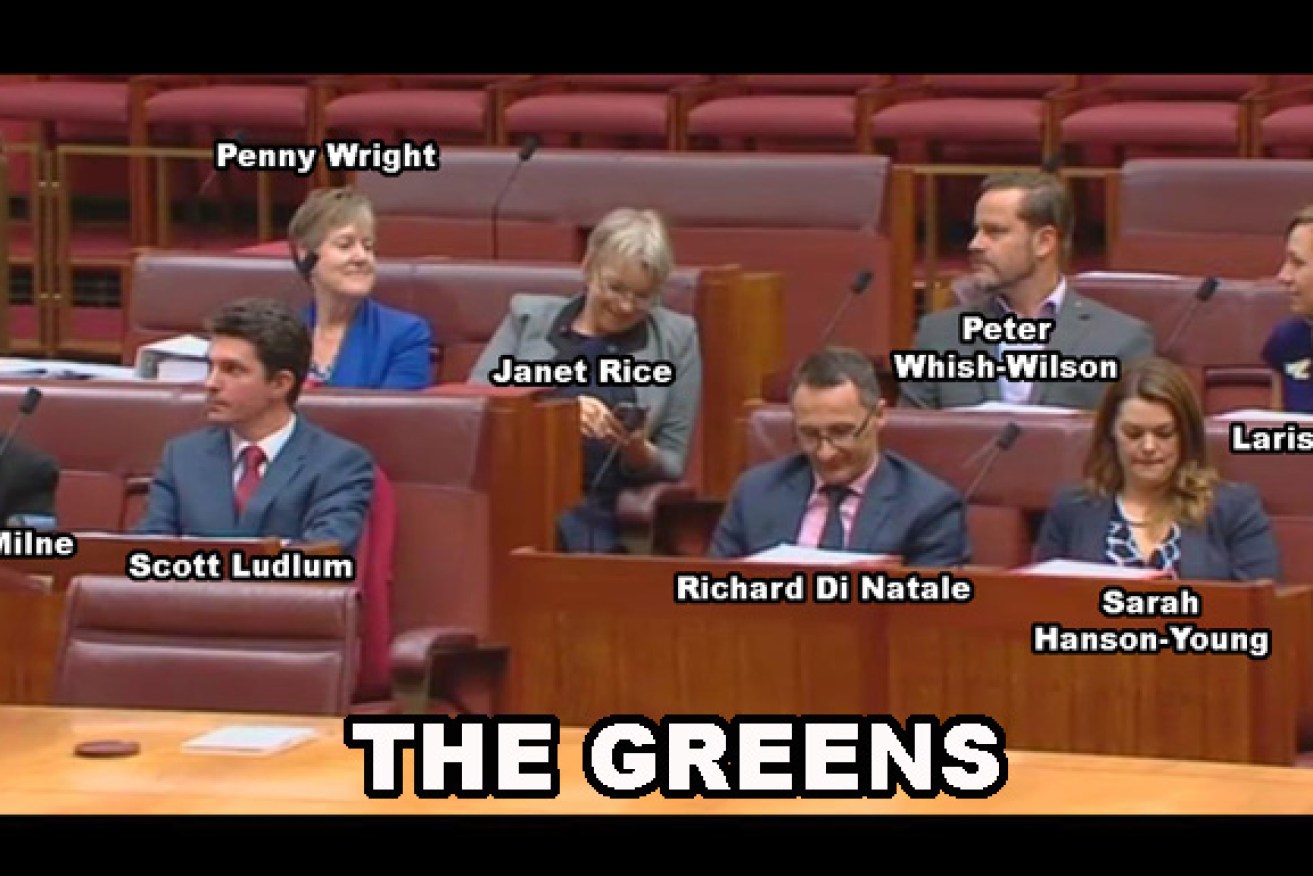Despite repeated warnings from the Greens and a core of crossbenchers, Australia’s two major parties have pushed through new spy laws.
On Thursday evening, the Liberal, Labor and Palmer United parties joined to pass meta data retention.
Greens leader Christine Milne said the whole country was now under surveillance, and condemned the opposition for cowardice.
• Secret foreign courts ‘threaten democracy’
• Is the NSW Premier too close to the bankers?
• Who was the Germanwings co-pilot?
“This is the Abbott government pressing the terror button and Bill Shorten too afraid to stand up because they want a unity ticket on national security,” Senator Milne told reporters in Canberra.
The government claims the laws, which allow about 85 security and policing agencies to access two years of an individual’s metadata, are crucial to thwart terrorism attacks and prevent serious crime.
Attorney-General George Brandis said telcos had been collecting this type of data for 20 years, but billing changes and the cost of storage were prompting companies to delete it.
Labor and Palmer United Senator Zhenya Wang backed the laws after the government agreed to dozens of changes and a specific warrant safeguard for journalists.
Liberal Democrat David Leyonhjelm condemned the laws as an ineffective anti-terrorism tool, arguing that adding more hay to a haystack would not make it easier to find the needle.
 Senator Leyonhjelm accused the Attorney-General of being “more obedient to the Australian Federal Police than some of their sniffer dogs”.
Senator Leyonhjelm accused the Attorney-General of being “more obedient to the Australian Federal Police than some of their sniffer dogs”.
Independent senator Jacqui Lambie, who also voted no, said imposing the death penalty on convicted terrorists would be a more successful national security plan.
The Greens unsuccessfully tried to amend the bill to require warrants for most metadata access and reduce the time frame for data storage from two years to three months.
Senator Ludlam, the party’s communications spokesman, said the Greens will spend the next 18 months building the case to repeal the laws after the 2016 election.
Independent Senator Nick Xenophon had pushed for greater protections for journalists, and voted against the bill when these were denied.
Motoring Enthusiast Party Senator Ricky Muir also voted no.
—with AAP.










